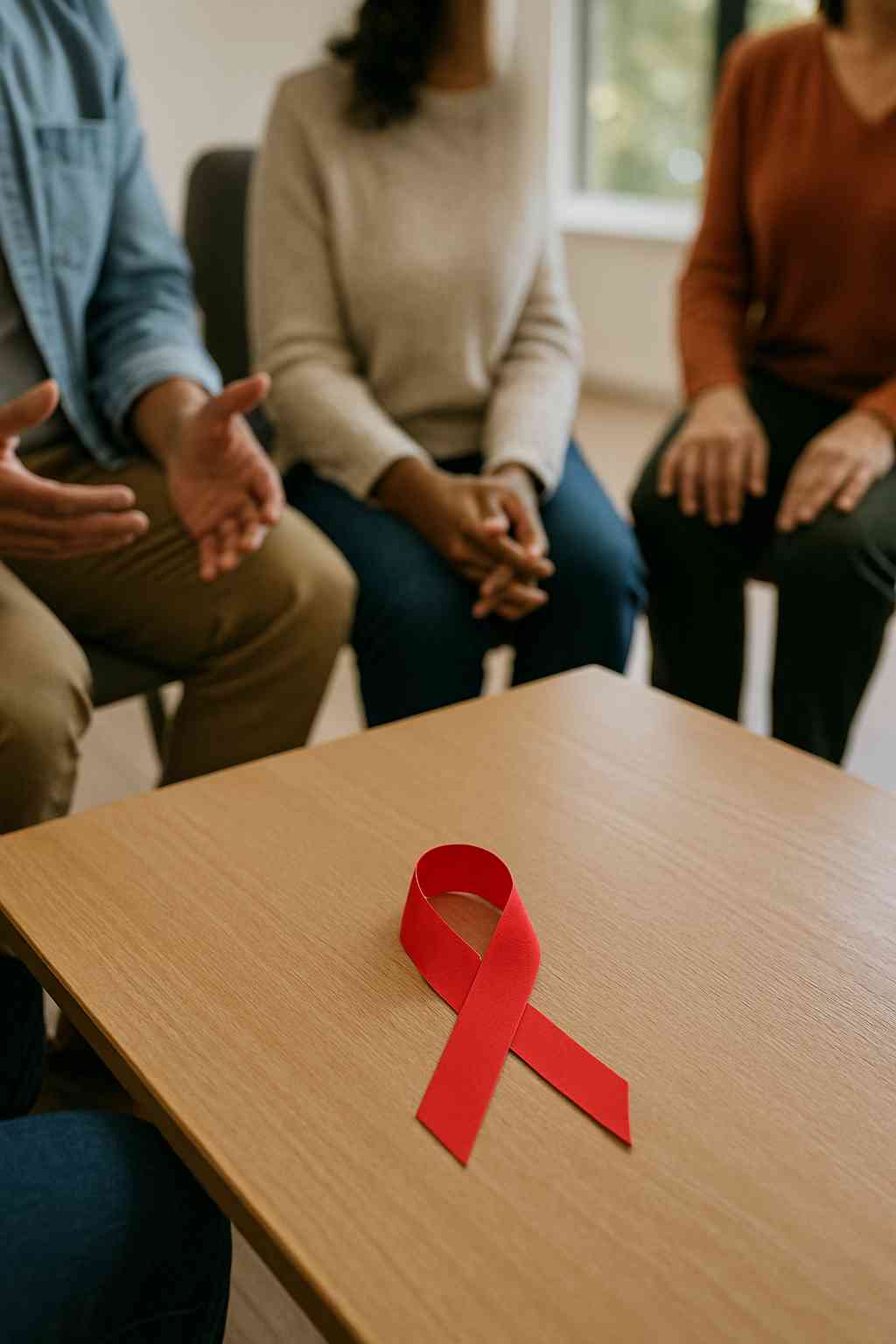Living with HIV can feel isolating—but it doesn’t have to be. That’s where HIV support groups come in. These safe, welcoming spaces provide more than just conversation. They offer healing, shared experience, and the powerful reminder: “You are not alone.”
Table of Contents
- What Are HIV Support Groups?
- Benefits of Joining a Support Group
- How to Find the Right HIV Support Group
- Conclusion
- FAQ
What Are HIV Support Groups?
HIV support groups bring together individuals living with HIV or affected by it—partners, caregivers, or even healthcare providers. Some groups meet in person, others connect online. Whether peer-led or facilitated by professionals, their goal is the same: connection, understanding, and strength.
These groups vary in format. Some are discussion-based. Others include educational speakers, wellness practices, or social events. But all serve to combat the stigma and isolation HIV can create.
Benefits of Joining a Support Group
The benefits of HIV support groups go beyond emotional wellness. Research shows that people in regular peer support experience improved medication adherence, better mental health, and stronger coping skills.
Some key advantages include:
- Emotional support from people who truly understand your journey
- Reliable information about medications, treatment updates, and healthy living
- Community empowerment through shared stories and strategies
- Decreased isolation and better social connection
- Reduced stigma, especially for newly diagnosed individuals
Support groups also help people navigate healthcare systems, find financial resources, and advocate for better care. According to Healthcare.pro, peer-based programs have become central to comprehensive HIV care.
How to Find the Right HIV Support Group
Looking for a group that fits your needs? Start with your local HIV/AIDS service organizations. They often host or refer individuals to both general and specialized groups, including:
- Women living with HIV
- LGBTQ+ communities
- Youth-focused support
- Groups for long-term survivors
- Virtual-only meetings
Online directories like POZ or national helplines can also guide you to resources in your area. Be patient—finding the right fit can take time, but it’s worth it.
And remember, it’s okay to try more than one group before settling in. What matters most is feeling respected, heard, and safe.
Conclusion
HIV support groups aren’t just gatherings—they’re lifelines. Whether you’re newly diagnosed or a long-term survivor, being part of a group reminds you that healing happens in community. Through connection, education, and shared resilience, support groups transform fear into empowerment—and silence into strength.
If you or someone you love is navigating HIV, consider joining a group. It could be the most powerful step you take toward wellness.
FAQ
Are HIV support groups confidential?
Yes, most groups emphasize privacy and confidentiality to ensure a safe, respectful environment for all participants.
Can I join a support group if I’m not HIV-positive?
Absolutely. Many groups welcome partners, caregivers, and allies who want to better understand and support their loved ones.
Do I need a referral to join a support group?
Usually not. While some medical centers may offer group referrals, most community and online groups are open-access.
What if I’m nervous about joining?
That’s normal. Try attending once just to listen—you’re not required to share. Many people feel relief after taking that first step.
How do virtual support groups work?
They typically meet via Zoom or chat forums. These platforms offer flexibility and privacy, especially for those in rural or conservative communities.
This content is not medical advice. For any health issues, always consult a healthcare professional. In an emergency, call 911 or your local emergency services.




